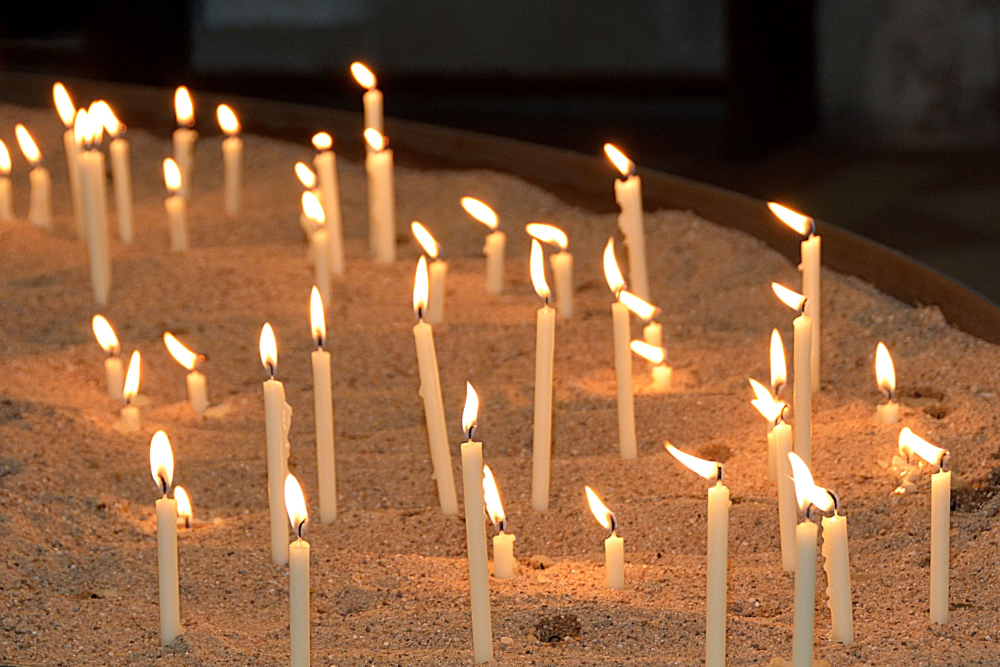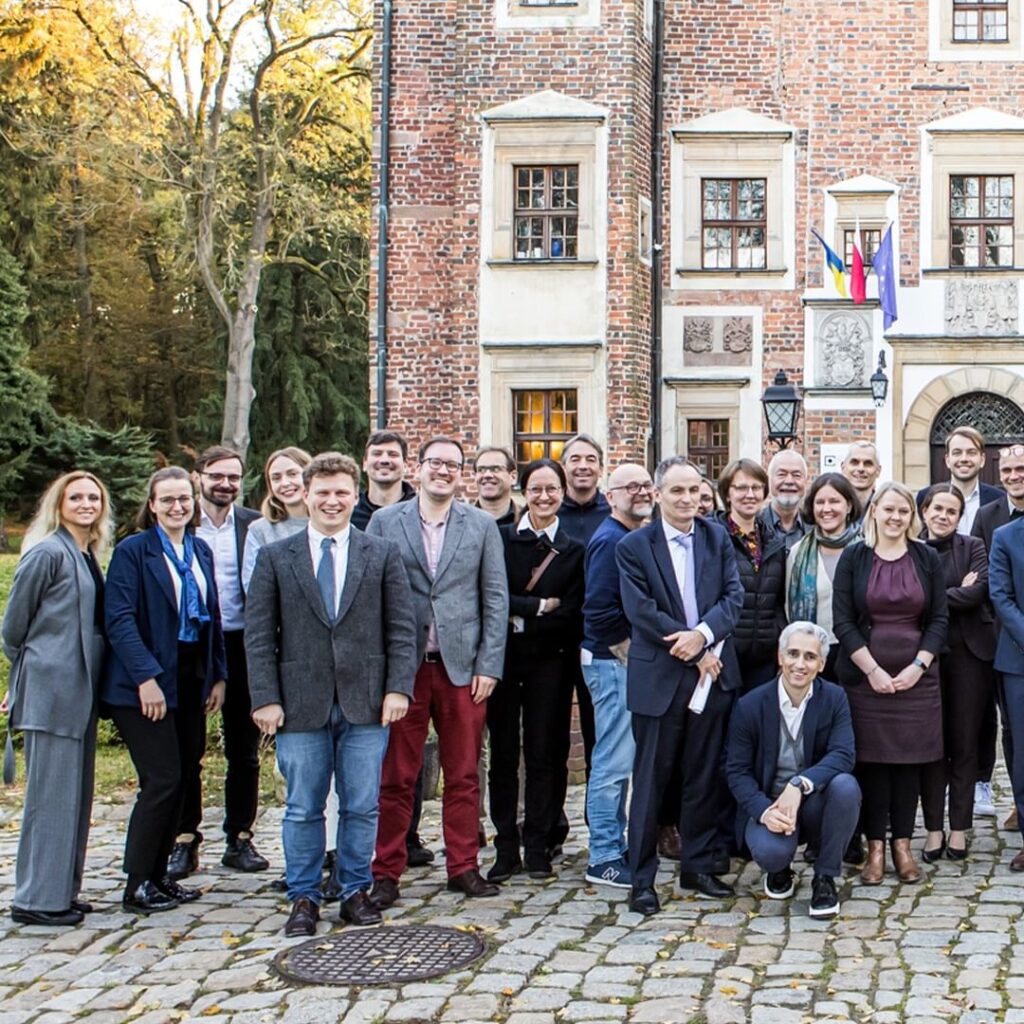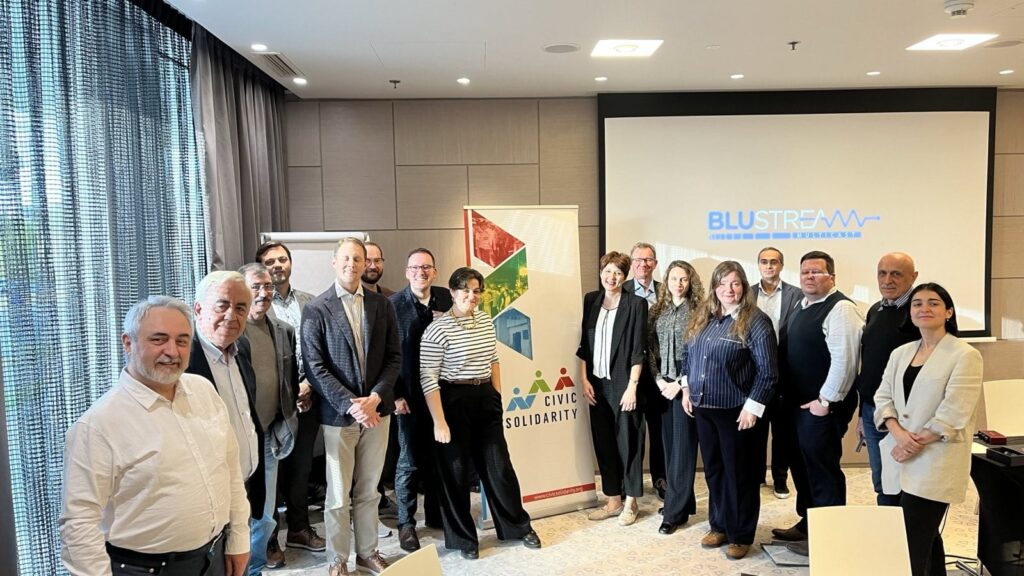The Terror Attack in Russia as a Symptom of a Complex Crisis and Perspectives on Coping
Last Saturday, a terrible terrorist attack took place in Russia. Presumably, four assailants infiltrated the Crocus City Hall on the northeastern outskirts of Moscow, where several thousand people had gathered for a rock concert. They opened fire on the concertgoers with automatic rifles and ultimately set the concert hall on fire. In this brutal act against peaceful civilians, at least 144 people were killed, and several hundred were injured, some severely.
The events evoke memories not coincidentally of past Islamist terrorist attacks, such as the one at the Bataclan concert hall in Paris in 2015. It did not take long for the Islamist terrorist organization IS – as it did in 2015 – to claim responsibility for the latest attack, further substantiated by the release of video footage of the terrorists. The mastermind behind the attack was apparently the Afghan IS branch ISPK, with four alleged Tajik citizens being the suspects.
In the following article, we aim to elucidate some background. Why have Central Asians increasingly been involved in terrorist activities in recent years? What are the causes of Islamist radicalization? Why do some of the causes lie within Russia itself? And what can civil society do about it when politics fails to take adequate measures or none at all?
ISPK (or ISIS-K), the Afghan branch of the terrorist organization, has been increasingly operating outside Afghanistan as well. In Germany alone, there were several incidents last year linked to ISPK. For instance, in March 2023, five Tajiks who had joined ISPK and were planning a terrorist attack in Germany were sentenced to lengthy prison terms in a retrial at the Federal Court of Justice. In July 2023, a total of seven Tajiks, Kyrgyz, and Turkmen were arrested on suspicion of planning ISPK terrorist attacks in Germany. In December 2023, plans for attacks on the Cologne Cathedral and Vienna’s St. Stephen’s Cathedral, associated with ISPK, were disclosed, with a Tajik being a suspect. Finally, in early March, two Afghans were arrested in Germany for planning a terrorist attack in Sweden. Security authorities in Russia also repeatedly announce thwarted Islamist attack plans. Most recently, the FSB announced in early March that they had killed several Islamists in the Kaluga region south of Moscow who allegedly planned an attack on a synagogue in Moscow on behalf of ISPK.
To understand why Tajiks, Uzbeks, and Kyrgyz are repeatedly involved in terrorist activities, one must consider that all three countries have been grappling with diverse political and economic problems for many years.
The countries of Central Asia are among the few states worldwide without access to the world’s oceans. With the exception of relatively wealthy Kazakhstan, which is rich in oil, gas, coal, ore, uranium, and other natural resources, most Central Asian countries are relatively poor economically. This is particularly true for Kyrgyzstan and Tajikistan. But even in Kazakhstan, socio-economic poverty is widespread, especially beyond the larger cities.
Politically, most countries in the region are characterized by precarious stability, which is regularly undermined by ethnic conflicts as well as economic, political, or cultural polarization. A good example of this is Tajikistan, where economic poverty, ethnic conflicts, and Islamic fundamentalism suppressed through harsh repression create a permanent latent instability.
The political landscape is dominated by oligarchic authoritarian governments whose political elites increasingly restrict civil rights and ideologically and geopolitically align closely with the traditional hegemonic power, Russia, while economically seeking closer ties with the economically stronger China. Although Kazakhstan, Uzbekistan, Kyrgyzstan, Tajikistan, and Turkmenistan (as well as Afghanistan) are often grouped together under the spatial-geographical term “Central Asia,” the countries are very heterogeneous and often cooperate little politically among themselves. Turkmenistan, an isolated, totalitarian-led, and almost completely closed-off country, is a special case.
Corruption is generally widespread and inhibits economic progress. The economically precarious situation and lack of prospects force many people to seek work abroad.
It is estimated that more than 1.5 million workers from Tajikistan, more than 3 million from Uzbekistan, and more than 1 million from Kyrgyzstan work in Russia. Accordingly, remittances from migrant workers are significant for these countries, accounting for up to a third of their GDP.
The trend of guest work in Russia began over 20 years ago when the country, during the boom of its oil and gas industry, sought cheap labor, especially for the construction and service sectors. The prospect of work, the easily accessible job market, and often existing knowledge of the Russian language attracted many people from the former Soviet republics of Central Asia to the country.
However, the situation for Central Asian migrants in Russia is far from good. They perform the arduous and dirty jobs for little pay. Moreover, their working conditions are often dismal, occupational health and safety regulations are ignored, systematic unpaid overtime is widespread, and there is inadequate insurance coverage, sometimes partial or complete non-payment of wages.
An essential factor is the widespread presence of ethnic-racist prejudices in Russia, also as a result of the still unaddressed Russian colonial history. This leads to deeply ingrained discrimination against ethnic minorities in the country and a significant amount of everyday racism. Reports often circulate claiming that so-called ‘guest workers’ are collectively portrayed as criminals and thieves. Despite the shared Soviet past repeatedly invoked by Russia, during which countries from Central Asia and Russia were part of a unified state, and despite the Russian language spoken by many migrants, they are subjected to racist insults and open discrimination on the streets. Russian extremists, for example, often hunt down migrant workers in the Moscow metro, usually without interference from law enforcement agencies. This also affects other ethnic minorities, such as people from the North Caucasus, who are themselves indigenous citizens of the Russian Federation.
The poor treatment and feeling of rejection fuel frustration and disappointment. In their homeland, they saw no perspective for themselves, but abroad, they find none that allows them a dignified life. In this situation, people become more susceptible to fundamentalist radicalization.
In research, precarious living and working conditions, social uprooting, and experiences of ethnically based discrimination are considered essential factors for increased radicalization risk. When ISIS ravaged Syria and Iraq in the past decade, hundreds of people from Central Asia joined as fighters. Many of them had been radicalized in Russia before.
Since the causes of radicalization are well researched, measures for prevention can also be derived from them. But if politics is unwilling or unable to take the necessary steps, what can civil society achieve?
In the past – until our ban in Russia in 2021 – we conducted large-scale programs for socioeconomic stabilization in the North Caucasus, the Russian territories of Chechnya, Ingushetia, Kabardino-Balkaria, and Dagestan, together with local civil society actors. Specifically, we assisted hundreds of people in starting their businesses with targeted workshops and seminars, supported them in developing their own business ideas, and accompanied them in implementation. At the same time, we linked our offering with further education about and measures against radicalization.
We are now applying our long-standing expertise in socio-economic empowerment of disadvantaged population groups to Central Asia, where we are currently collaborating with partner organizations to develop a project aimed at addressing poverty, lack of prospects, and radicalization structurally. We advocate for ensuring that all people benefit from economic development.
We are convinced: Sustainable and socially inclusive economic development in Central Asia will lead to a real improvement in living conditions and thus also stem further extremism. This is especially true for the rural regions heavily affected by poverty and lack of prospects. This represents a gain far beyond the borders of the region.








